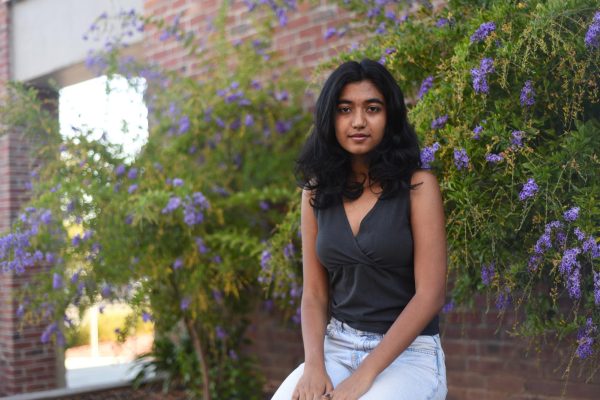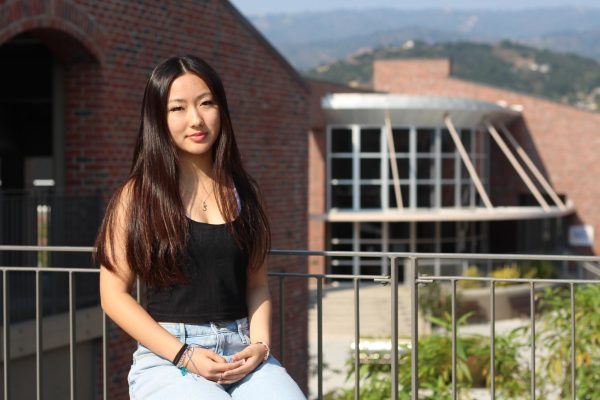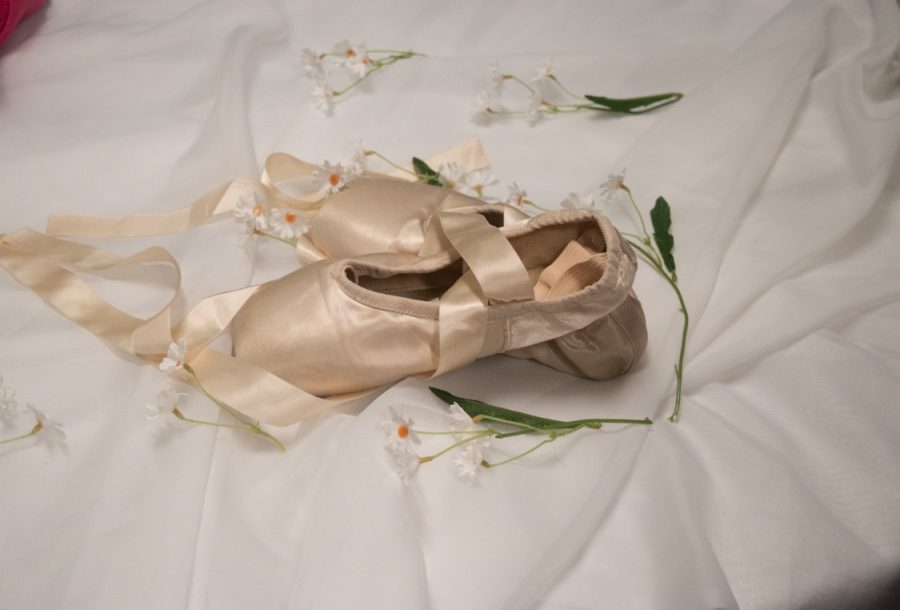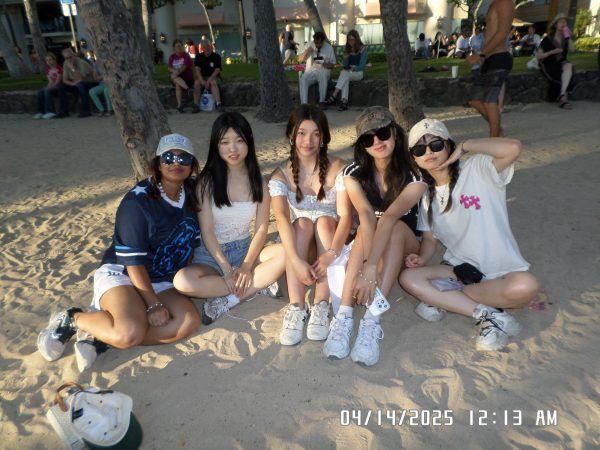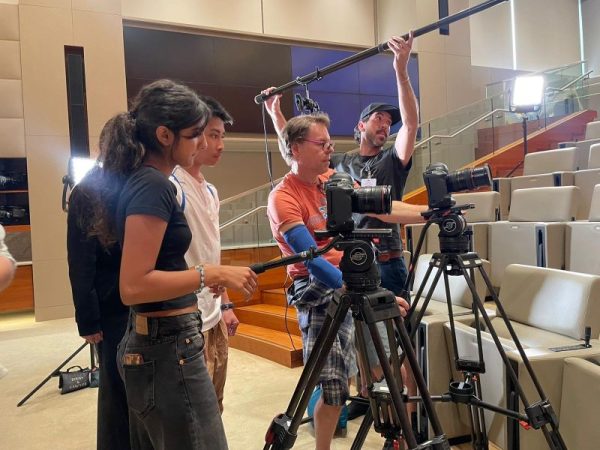First Passions
Exploring the stories behind different people and their passions
Photo in representation of Wangs passion and love for dance
June Wang:
Dance has been a part of senior June Wang’s life since she was three years old, but she discovered her real passion for dancing when she was 11. Before the age of 11, Wang says that she dutifully went to dance classes, not for herself, but simply to please her mom. However, Wang remembers the exact moment when dancing turned into something she truly loved to do. She says that once, when her parents threatened not to drive her to dance class as a punishment, she was so determined to go that she walked 20 minutes to her dance studio by herself.
Laughing as she looks back on the experience, Wang says the incident helped her strengthen her love for dance. Wang believes a significant reason why dance has become such an important part of her life is due to the adaptability and flexibility that is required to become a great dancer.
“It was when I learned to accept dance for my own purpose, rather than for performances or external parties’ judgment, that I came to accept that [dance] wasn’t something to be validated 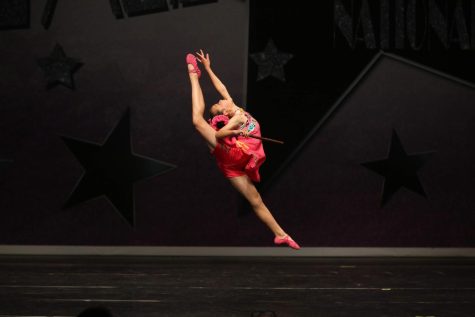 by other people,” Wang said. “By claiming [dance] for myself, I was able to solidify my bond with it.”
by other people,” Wang said. “By claiming [dance] for myself, I was able to solidify my bond with it.”
Growing up, Wang danced at a Chinese dance studio, and although she learned a lot and enjoyed dancing there for several years, Wang says that trying out for the MVHS dance team allowed her to step out of her comfort zone.
“[After joining the dance team], I had to improvise for the first time,” Wang said. “I initially struggled with the spontaneousness of it, but I realized that in dance, it’s not just about creating a final product for performance, but also to enjoy it and relish in the spontaneousness of your movements.”
Wang says being a part of the MVHS dance team has pushed her not to just be a better dancer, but also helped her with life skills. With pre-scheduled practices three days a week and other practices added on as necessary, the consistency that being on the team has required has taught her to manage her time more efficiently and prioritize what truly matters to her.
Wang says learning how to manage her time efficiently has been a big learning curve, but thinks she’s managed to find a solution to combat procrastination. Wang currently uses a Google document to record to-do lists, and she has found the system effective, as she can plan her tasks for the upcoming weeks.
Although Wang doesn’t plan on dancing professionally after high school, she doesn’t intend to leave the dance world behind, as she intends on pursuing several dance-related hobbies in the future, such as dance photography. She is also interested in becoming a mentor for younger dancers in the future.
“I would like to pass [my] passion on to the next generation, and also be able to help them discover their true selves as well through the art of dance,” Wang said.
Allen Li:
One day, as sophomore Allen Li watched a ball bounce as a child, he suddenly wondered, “Why does it actually bounce?” He was fascinated by his parents’ explanation and became intrigued by physics.
Li says he has never found physics to be hard, and this ease encouraged him to continue learning the subject. He also says its real-world applications interest him, as they allow him to physically see physics’ effects on the world around him. As a result, Li started to seek out more opportunities to explore physics both inside and outside of school.
“Currently, I’m learning a lot about special relativity,” Li said. “Although it might seem kind of fictional how you could travel at speeds even close to the speed of light, because everything seems pretty much instant here, it still has very big effects on stuff we use every day like GPS because even a tiny amount of error in the calculations will cause your location to be very off.”
Li’s parents have always been supportive of his interest in physics. In middle school, they encouraged him to sign up for the Science Olympiad, which allowed him to explore his interest in a collaborative environment. Li’s partners in the Olympiad helped him gain a stronger understanding of physics. He believes having a team of people who enjoy the same topic is motivating.
Li currently takes AP Physics 1 at MVHS. Since the class follows a flipped-learning classroom style, he has more freedom to learn on his own. He also self-studies physics topics for fun, immersing himself in applications that are relevant in the real world.
“I’ve been researching online about a bunch of various miscellaneous physics topics, just for fun, but also to learn more about it,” Li said.
Li says it would be very fun for him to pursue a career that integrates physics and coding, two of his passions. He is considering pursuing engineering because of its applicability to the real world and says his solid grasp of physics would help him as an engineer.
“I like the ability to understand why things are happening and how they happen and what will happen next,” Li said.
Riddhi Shedge:
All the lights went out in the Planetarium as sophomore Riddhi Shedge sat beside her peers watching the stars, galaxies, comets, nebulas and every celestial object imaginable jumping out through the screen, overwhelming her with awe.
“[When] I was seven or eight, my parents got me this stargazing and constellation book and it had huge pictures of planets and stars,” Shedge said. “I was like, ‘Wow, there’s stuff outside that looks so beautiful like this in our own universe,’ and it really fascinated me.”
Shedge was passionate about astronomy from a young age, and she always expressed this interest to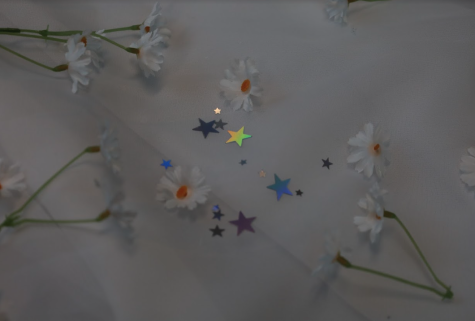 her parents — to which she was met with constant support
her parents — to which she was met with constant support
and encouragement. Along with reading stargazing and constellation books, she would also explore her interests by going stargazing at night.
Shedge says that astronomy helped to quench her curiosity while also making her realize how much she has yet to learn about the universe. Learning astronomy also helped Shedge face her problems because it made think of her problems in terms of the size of the universe.
“I feel very thankful that I [found] astronomy, because I think by learning about astronomy I realized how vast the universe [is],” Shedge said. “Our planet is just so small and just a tiny speck in this big vastness of space.”
In her daily life, Shedge self studies astronomy topics and steps out of her comfort zone to participate in competitions, including one where she had to build a rover. At school, she tries to pick astronomy-related courses — since astronomy isn’t a class at MVHS Shedge also started an astronomy club with her friend. Through this club, she hopes to inspire a love for astronomy in other students who share her interests.
Shedge also interned at the Monterey Institute of Research in astronomy, which gave her real-life work experience. She worked under a Ph.D. astronomer in a specific astronomy field called spectroscopy, where they analyzed spectra from what they observed on the telescope to identify certain information about stars. The Ph.D. astronomer Shedge interned under always gave her opportunities to ask questions and learn more, and he encouraged her to pursue her interest in astronomy in a future career.
“I am almost 100% sure that my future will involve astronomy and I really do want to have a career in astronomy and work at NASA one day,” Shedge said.
